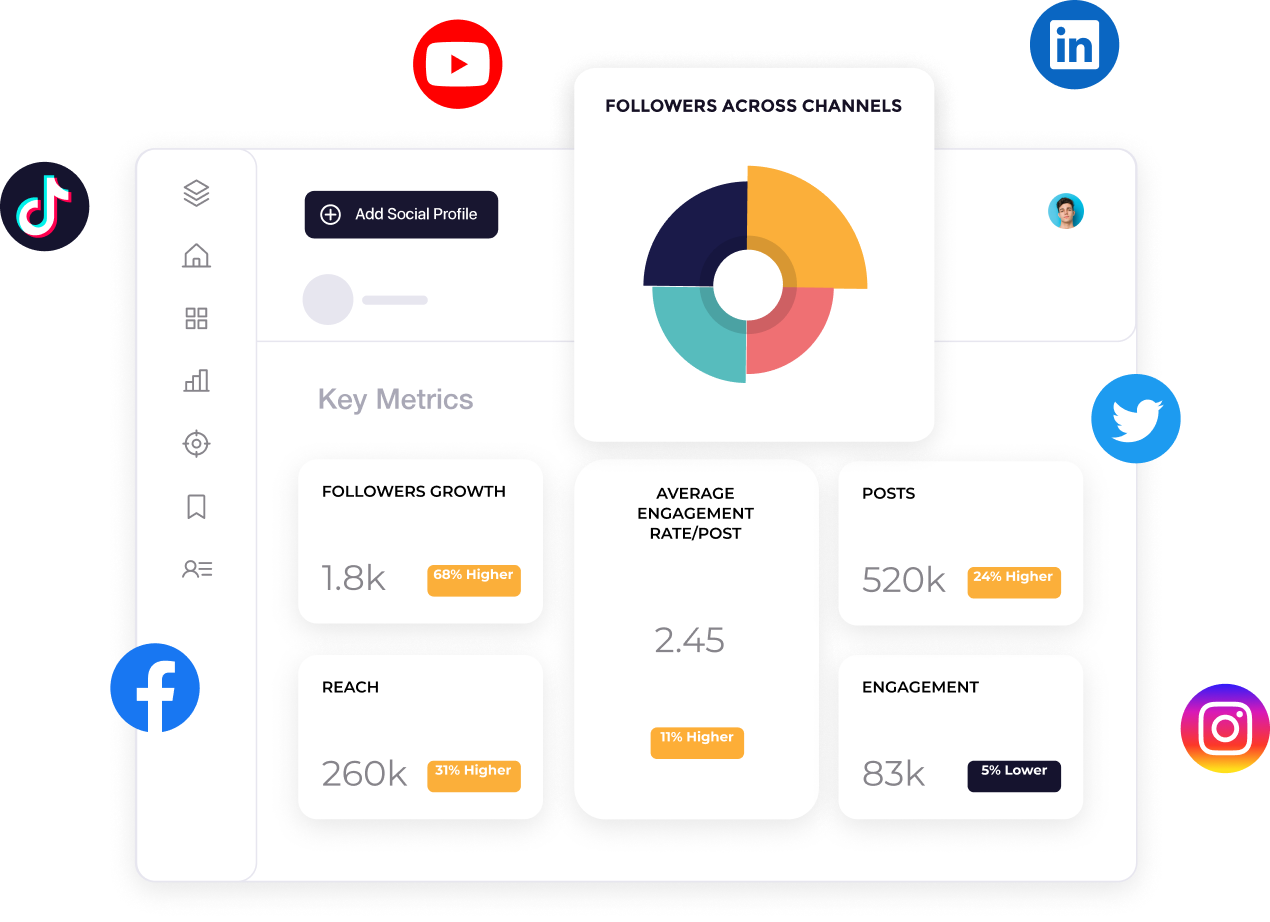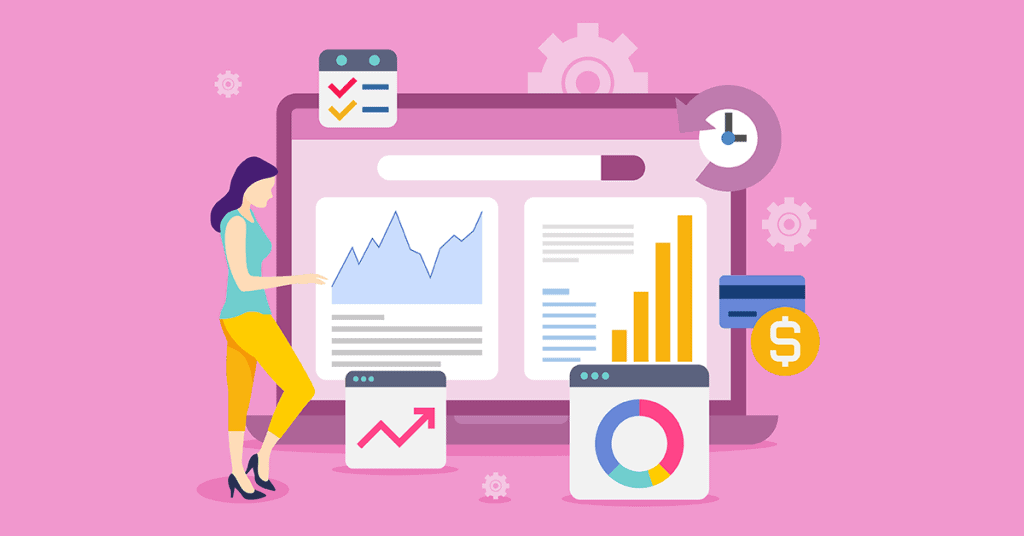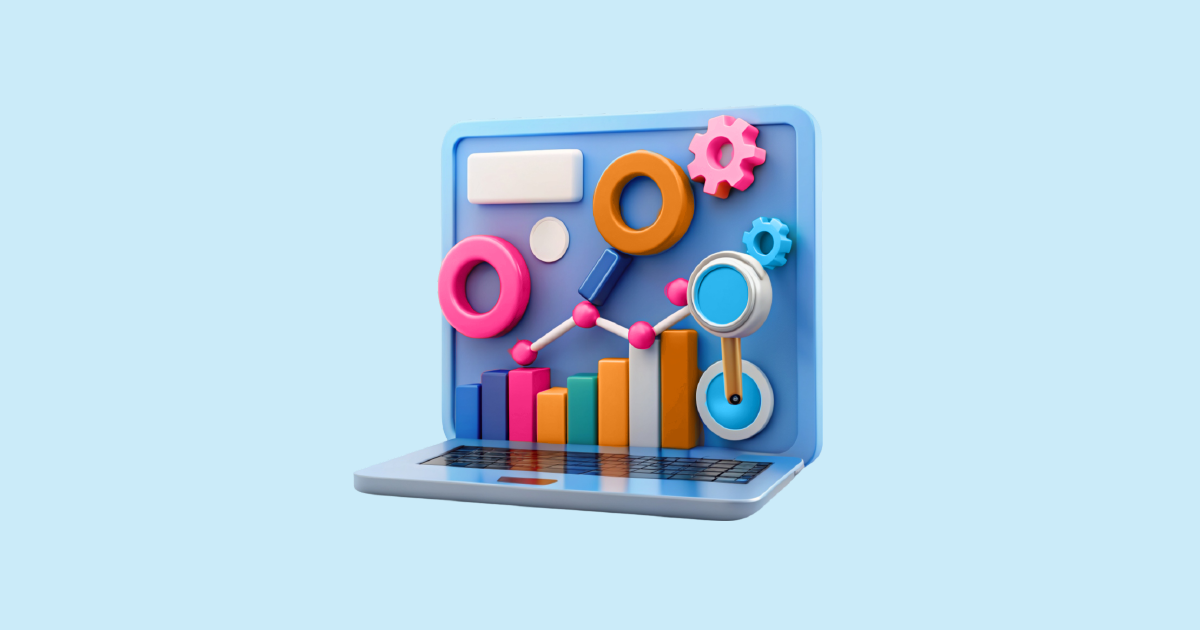In today’s digital age, social media has become an integral part of every business’s marketing strategy. With billions of active users on various social media platforms, it presents a goldmine of potential customers and valuable data. However, to truly harness the power of social media, businesses need a robust analytics platform that can provide in-depth insights and help optimize their marketing efforts. In this article, we will explore the best social media analytics platform available and how they can revolutionize your business’s social media marketing game.
The Importance of Social Media Analytics

Social media analytics refers to the process of collecting, analyzing, and interpreting data from social media platforms to gain valuable insights into audience behavior, content performance, and overall campaign effectiveness. It allows businesses to measure the impact of their social media efforts and make data-driven decisions to optimize their marketing strategies.
Key Features to Consider in a Social Listening Analytics Tool
When selecting the best social media analytics platform for your business, it is essential to consider the following key features:
Data Collection and Integration
A robust analytics platform should be capable of gathering data from various social media channels, including Facebook, Twitter, Instagram, LinkedIn, and more. It should offer seamless integration with these platforms, enabling comprehensive data collection.
Performance Tracking and Engagement Metrics
Tracking the performance of your social media campaigns is crucial to understanding what works and what doesn’t. Look for a platform that provides detailed engagement metrics such as likes, shares, comments, click-through rates, and follower growth.
Audience Insights and Demographics
Understanding your target audience is vital for crafting effective marketing strategies. A social media analytics platform should offer audience insights, including demographics, interests, online behaviors, and sentiment analysis.
Competitor Analysis
Analyzing your competitors’ social media presence can provide valuable insights into industry trends and potential opportunities. Look for a platform that offers comprehensive competitor analysis, including content performance, follower growth, and engagement metrics.
Reporting and Data Visualization
The ability to generate customizable reports and visualize data in an easy-to-understand format is crucial for making informed business decisions. Look for a platform that offers intuitive reporting dashboards and data visualization tools.
Sentiment Analysis and Brand Reputation Management
Monitoring sentiment around your brand and managing your online reputation is essential for maintaining a positive brand image. Choose a platform that provides sentiment analysis capabilities and real-time monitoring of brand mentions.
AI-Powered Predictive Analytics
Harnessing the power of artificial intelligence can take your social media marketing to the next level. Look for a platform that leverages AI algorithms to provide predictive analytics, helping you identify trends, anticipate customer behavior, and make data-driven predictions.
Best Social Media Analytics Platform

Aim Insights: Unleashing Advanced Data Insights
AIM Insights is a comprehensive social media analytics tool that offers advanced data insights and reporting capabilities. It provides real-time monitoring of social media channels, detailed engagement metrics, audience demographics, and sentiment analysis. With its intuitive interface and customizable reports, Aim Insights empowers businesses to optimize their social media strategies effectively.
How to Choose the Best Social Media Analytics Platform
Choosing the best social media analytics platform for your business can be a daunting task. Consider the following factors to make an informed decision:
- Define your goals and objectives: Determine what you want to achieve with social media analytics and choose a platform that aligns with your goals.
- Evaluate features and functionalities: Assess the key features discussed earlier and prioritize the ones that are most important for your business.
- Consider scalability and flexibility: Ensure that the platform can scale with your business’s growth and adapt to future needs.
- User-friendliness and ease of integration: Look for a platform that offers an intuitive interface and seamless integration with your existing tools.
- Budget and pricing: Consider your budget and evaluate the pricing plans of different platforms to find the one that offers the best value for your investment.
Case Study: Transforming Social Media Marketing with AIM Insights
A mid-sized online retailer faced difficulty maintaining their digital presence despite having a larger following across their different social media platforms. They were able to understand which content was suitable for their target audience. Also, they were not able to know how effective their campaigns were and their ROI, so they decided to analyze their social media more to stay ahead in the market.
Challenges
The company was facing some challenges in managing its social media platforms.
- Unclear ROI: They weren’t able to measure their campaigns’ ROI, which made it challenging to know how successful the campaigns were.
- Inconsistent Engagement: The engagement on social media for different posts was varied. However, the reason behind this was not clear to the brand.
- Targeting Issues: They weren’t sure if they were reaching the right target audience. Despite having a large number of followers across their social media.
- Lack of Competitive Insights: WIthout having a clear insights about the competitors insights. They were not able to identify the gaps and opportunities to differentiate.
Solution
To be able to address all these challenges, the company decided to implement AIM Insights tools. Which is a comprehensive social media listening and analyzing platform, to be able to get insights about different aspects.
- Audience Insights and Demographics
AIM Insights offered the business in-depth demographic insights about their target audience. Including the age group, locations, and their different interests. To help the brand to connect effectively with the right audience and engage with them.
- Performance Tracking and Engagement Metrics
The tool provided insights about the different engagement metrics on each content. To be able to know which content is working better with the customers. leading to adjusting their content to match the target audience’s interests and encourage them to engage with it.
- Competitor Analysis
They were able to identify the different social media strategies of the competitors through the tool. To be able to know which type of content was generating more engagement for the competitors. To identify new opportunities for the brand through social media content.
- Sentiment Analysis
The sentiment analysis feature enabled the brand to track the customers’ feedback and opinions in real time. To be able to respond to any negative feedback and work on solving the customer’s complaints. Helping in managing the online brand reputation and keeping it positive.
- Customizable Reporting
The brand was able to leverage the customized reporting feature to be able to create and adjust its reports. Tailor different reports to ease the reading process for the social media insights.
Results
After months of implementing AIM Insights, the company noticed improvement in its social media performance.
- Engagement Rate: Social media engagement was increased by 20%.
- Follower Growth: The company noticed a 15% increase in the number of followers, particularly from the target audience.
- Content Optimization: Through knowing which content was performing better. The company focused more on user-generated content and lifestyle images.
- Competitive Advantage: The competitor analyses helped the brand to discover more successful strategies to follow in the market.
Conclusion
In the era of social media dominance, leveraging a powerful analytics platform is essential for businesses to thrive. The best social media analytics platforms offer a wide range of features, including advanced data insights, real-time monitoring, competitor analysis, customizable reporting, predictive analytics, and influencer tracking. By choosing the right platform and harnessing its capabilities, businesses can unlock valuable insights, optimize their social media strategies, and stay ahead of the competition.
Are you ready to take your social media marketing to the next level? Request a demo of the cutting-edge social media analytics platform from AIM Technologies today! Discover how Aim Technologies can empower your business with in-depth insights, actionable data, and enhanced performance tracking. Don’t miss out on the opportunity to revolutionize your social media marketing.
FAQs
Q1: How can social media analytics benefit my business?
- A1: Social media analytics can provide valuable insights into audience behavior, content performance, and campaign effectiveness. It helps businesses make data-driven decisions, optimize their marketing strategies, and achieve better results.
Q2: Are social media analytics platforms suitable for small businesses?
- A2: Absolutely! Social media analytics platforms cater to businesses of all sizes. They offer scalable solutions and customizable features to meet the specific needs of small businesses.
Q3: Can social media analytics platforms help in measuring ROI?
- A3: Yes, social media analytics platforms provide metrics and reporting capabilities that help measure the ROI of your social media campaigns. You can track key performance indicators, such as conversions, engagement rates, and follower growth, to assess the effectiveness of your efforts.
Q4: Is it possible to integrate social media analytics platforms with other marketing tools?
- A4: Yes, most social media analytics platforms offer integrations with other marketing tools such as CRM systems, email marketing software, and advertising platforms. This allows businesses to streamline their marketing efforts and gain a comprehensive view of their marketing performance.
Q5: How often should I analyze social media analytics data?
- A5: Regular analysis of social media analytics data is recommended. The frequency can vary depending on your business goals and campaign activity. However, reviewing data at least once a month is a good starting point to identify trends, measure progress, and make necessary adjustments to your social media strategy.




